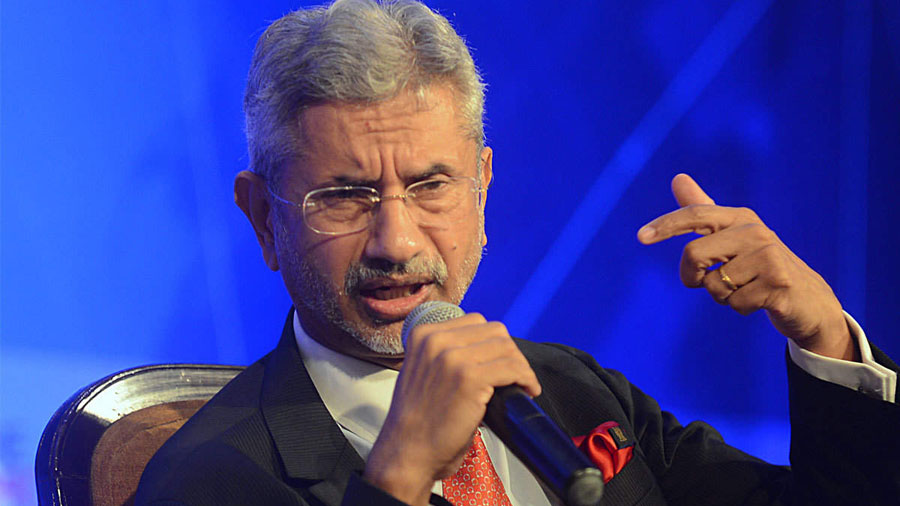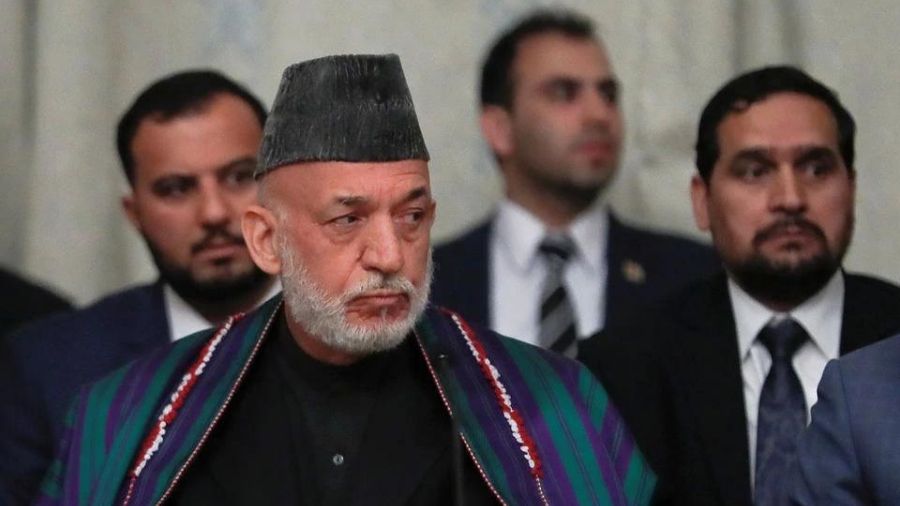India, like much of the rest of the world, has decided to adopt a wait-and-watch policy on Afghanistan to see whether the new government in Kabul is entirely Taliban-run or has a power-sharing component with other Afghan leaders.
Sharing the government’s concern about the approaching August 31 deadline for the US pullout from Afghanistan, external affairs minister S. Jaishankar on Thursday said the situation was fluid and that India was consulting key stakeholders, partners and regional countries to assess the ground reality.
Jaishankar was fielding the Opposition’s questions on how the Narendra Modi government planned to deal with the evolving situation in Afghanistan.
The Opposition was broadly supportive of the government’s efforts, calling a ceasefire to the acrimony of the monsoon session of Parliament.
There was general acknowledgement of the difficulties that all countries are facing in the evolving situation.
Jaishankar himself in a tweet acknowledged the spirit in which the Opposition participated in the meeting. “Briefed the Floor Leaders of all political parties today on Afghanistan. 37 leaders from 31 parties attended. Thank them all. There is longstanding national sentiment on Afghanistan. Therefore, there is national concern now at developments. We are gathered with a national spirit,” he tweeted.
The briefing — which was initiated by the government itself — was mainly on the evacuation exercise, the challenges faced in the process and the measures the government had taken over the past year to prepare for such an eventuality.
The government, however, was unable to provide information on the number of Indians still remaining in Afghanistan.
According to the minister, 565 people had been evacuated over the past week and a half. This includes 175 embassy personnel, 263 other Indians, 112 Afghan nationals (including Sikhs and Hindus), besides 15 people from other countries.
These evacuations, the government said, were done under challenging circumstances such as frequent firing near the airport and in Kabul, multiple checkpoints manned by various groups, issues at the airport, landing permission delays and the need for overflight clearances from various countries as the effort was to avoid Afghan airspace as far as possible.
On the pre-emptive measures, the government said it had temporarily withdrawn Indian personnel from the consulates in Herat and Jalalabad in April 2020, scaled down the embassy in Kabul in June this year and evacuated Indians from the consulates in Kandahar and Mazar-e-Sharif over the past month.
With the Opposition leaders expressing concern about the remaining Indians in Afghanistan, Jaishankar assured them that bringing everyone out was the government’s first priority.
The minister, however, had to face flak from the Left for the pro-US alignment of India’s foreign policy.
CPI’s Binoy Viswam sought to remind everyone that the Taliban were the brainchild of the US and urged India not to put all its eggs in the American basket.
Viswam was, however, appreciative of the democratic manner in which Jaishankar conducted the whole meeting.
“Though parliamentary affairs minister Pralhad Joshi had said that the smaller parties would get time to speak after the larger parties only if there was time, Jaishankar heard everyone out patiently and answered all our questions. This was a departure from the meetings with this government where it is usually a monologue,” Viswam told The Telegraph.
Former Prime Minister H.D. Deve Gowda stressed the need for India to handle the situation in Jammu and Kashmir and the Northeast properly to be able to play a bigger role on the world stage and secure “our multiple interests in the region”.
Trinamul Congress leaders extended support to the government for all the steps taken in the larger interest of the country.












